Participating Connecticut Colleges & Universities
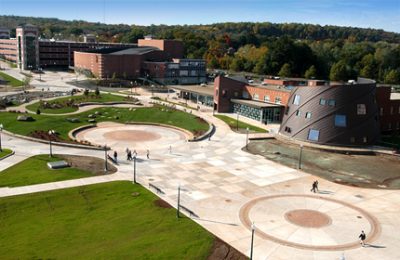 |
Central Connecticut State University (CCSU) New Britain Central Connecticut State University is a regional, comprehensive public university dedicated to learning in the liberal arts and sciences and to education for the professions. Comprising four schools — Business; Education & Professional Studies; Graduate Studies; and Engineering, Science & Technology, in addition to the Carol Ammon College of Liberal Arts & Social Sciences — CCSU offers undergraduate and graduate programs through the Master's and sixth-year levels and the EdD in Educational Leadership. More than 85 percent of CCSU graduates remain in Connecticut, contributing to the intellectual, cultural, and economic health of the state. Central Connecticut State University |
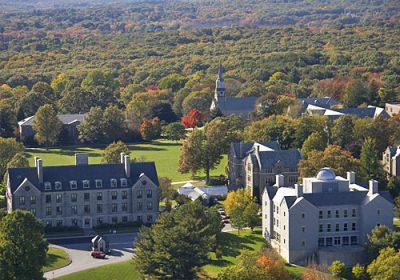 |
Connecticut College (ConCollege), New London ConCollege is a small, classic Liberal Arts College where students can choose from 42 majors and 43 minors and enroll in various certificate and internship programs. The college strives to prepare its graduates "to be creative, adaptive thinkers ready to tackle the world’s most complex problems." Connecticut College |
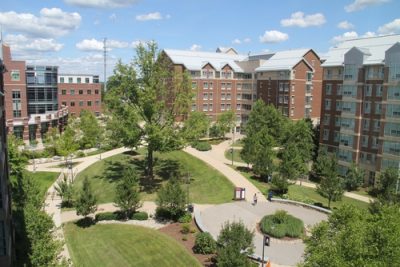 |
Eastern Connecticut State University, Willimantic The mission of Eastern Connecticut State University, the state’s designated public liberal arts university, is to provide high quality undergraduate and select graduate programs to a diverse population of talented students. Eastern’s inclusive residential campus, outstanding faculty, emphasis on teaching excellence and exceptional facilities raise students’ aspirations and cultivate engagement, inquiry, integrity and social responsibility. In the traditional arts and sciences, as well as in pre-professional programs that are grounded in the liberal arts, Eastern students apply theory in practical settings. Eastern Connecticut State University |
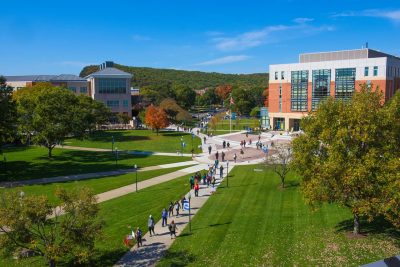 |
Southern Connecticut State University, New Haven Founded as a teachers college in 1893, Southern has evolved over the past century into a medium-sized university with more than 700 faculty members, offering 114 graduate and undergraduate programs in fields such as business, psychology, nursing, education, liberal studies, biology, communication, and more. Southern Connecticut State University |
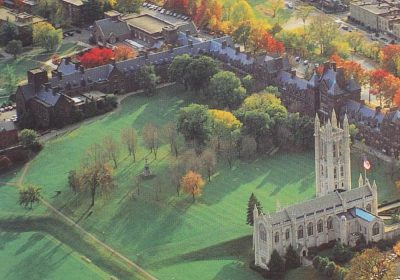 |
Trinity College, Hartford Trinity is a preeminent New England liberal arts college in an urban setting. At 200 years old, the college provides an education with more than 900 courses in 41 majors that is both relevant and timeless. It was founded in the Episcopal tradition, but is rooted in principles of religious and academic freedom. Trinity College |
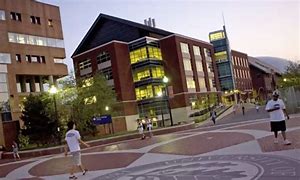 |
University of Connecticut, Storrs Founded in 1881, the University of Connecticut (UConn) ranks among the Top 25 public universities in the nation. It has its main campus in Storrs and four regional campuses in Avery Point, Hartford, Stamford and Waterbury. With 14 schools and colleges and 113 majors to choose from, there is something for everybody.University of Connecticut |
| |
University of Hartford (UHart), Hartford The University of Hartford provides a robust, distinctive educational experience for its more than 5,000 undergraduate and 1,600 graduate students. Distinguished faculty provide rigorous instruction as well as research, performance, and internship opportunities in more than 100 degree programs in the arts, humanities, business, engineering and technology, education, and health professions. With students from 48 states and 63 countries, UHart is a university for the world. University of Hartford |
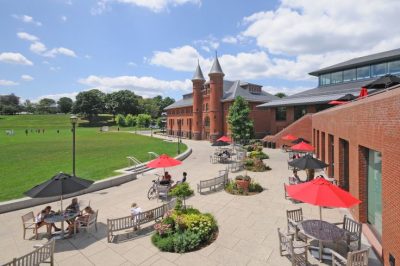 |
Wesleyan University, Middletown Wesleyan University, founded in 1831, is a diverse, energetic liberal arts community where critical thinking and practical idealism go hand in hand. The student body of approximately 3,000 undergraduate and 200 graduate students is housed on a 316-acre historic New England campus that offers the comfort of an intimate and collaborative learning environment supported by renowned faculty, cutting-edge facilities, and unique research opportunities. With their distinctive teacher-scholar culture, creative programming, and commitment to interdisciplinary learning, Wesleyan challenges students to explore new ideas and change the world. Their graduates go on to lead and innovate in a wide variety of industries, including government, business, entertainment, and science.Wesleyan University |
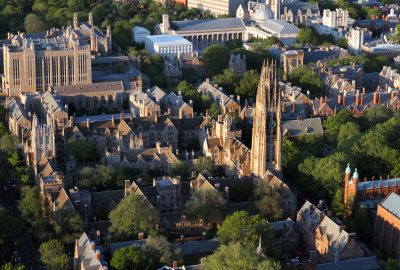 |
Yale University, New Haven Yale is committed to improving the world today and for future generations through outstanding research and scholarship, education, preservation, and practice. Yale educates aspiring leaders worldwide who serve all sectors of society. The university carries out this mission through the free exchange of ideas in an ethical, interdependent, and diverse community of faculty, staff, students, and alumni. The Baden-Wuerttemberg - Connecticut Exchange has a close cooperation with the Graduate School of Arts and Sciences and with the Yale Divinity School. Yale University |
Participating Baden-Wuerttemberg Universities
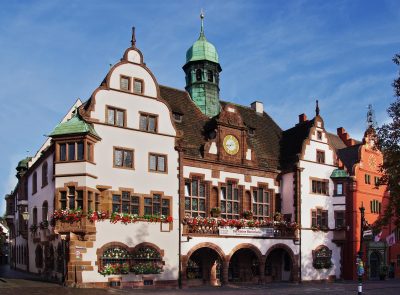 |
Freiburg The University of Freiburg offers both unsurpassed beauty and one of the warmest climates in Germany. It is located in a picturesque valley on the western border of the Black Forest. Founded in 1457, it is the second oldest university in Germany. It offers a wide range of liberal arts courses as well as a fully developed Deutsch als Fremdsprache program. University of Freiburg International Office |
 |
Heidelberg The University of Heidelberg is nestled between rolling hills, where the Neckar River spills out into the Rhine plane. Under the watchful eye of the famous Heidelberg Castle, the university is interspersed throughout the city. Founded in the 14th Century, the University of Heidelberg has a strong tradition in the liberal arts and has taken its place as a leader in the sciences and medicine as well. It also has an extensive Deutsch als Fremdsprache program. University of Heidelberg International Office |
 |
Hohenheim The University of Hohenheim is located in Stuttgart, the capital of Baden-Wuerttemberg. Its roots date back to 1818 with the founding of an agricultural research and teaching institute which became a college of agriculture and a full-fledged university in 1967. While emphasis at the University of Hohenheim remains on the biological and agricultural sciences (including animal science), economics (including business administration), nutritional sciences and communications are other represented specializations. University of Hohenheim International Office |
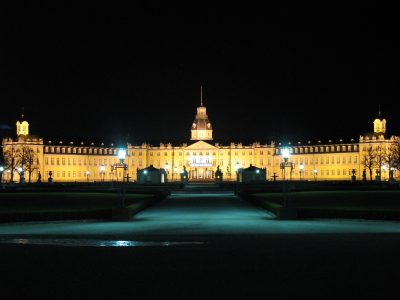 |
Karlsruhe The Karlsruhe Institute of Technology opened its doors in 1825 as a polytechnic school to 250 students. With 20,000 students today, it is a major technical university comparable to MIT or California Polytech. Karlsruhe offers degrees in 40 different fields. Its largest programs are in civil, electrical and mechanical engineering; computer science; and the natural sciences. It also has offerings in the humanities and social sciences. Karlsruhe Institute of Technology International Office |
 |
Konstanz The University of Konstanz was founded in 1967. The largest program of study in Konstanz is political science/public administration. Konstanz is a campus university and is housed in ultra modern structures in close proximity to each other. The town of Konstanz lies on the shores of Lake Konstanz (Bodensee), which shares its borders with Switzerland and Austria. University of Konstanz International Office |
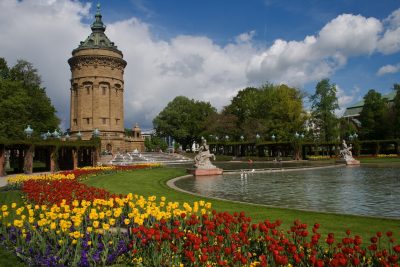 |
Mannheim The University of Mannheim, which began as a school of commerce and business in 1907, offers a metropolitan environment with easy access to some of Baden-Wuerttemberg's largest business firms and cultural centers. A university since 1967, its largest program is in business administration and economics. It is also highly regarded in the social sciences (including history and education) and has excellent programs in the humanities (including modern and ancient languages). As a school of business, Mannheim has consistently received the highest ranking not only in Germany but also throughout Europe. University of Mannheim International Office |
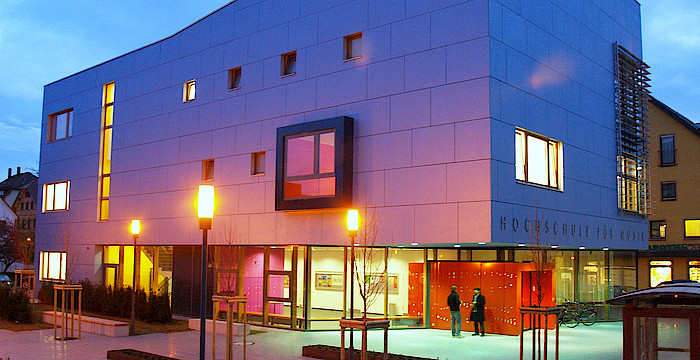 |
Mannheim - Music and Performing Arts Although Mannheim University of Music and Performing Arts only became a state institution in 1971, it can look back on a successful tradition of more than 200 years. Main subjects that are taught at the University include: orchestral instruments, keyboard instruments, voice (concert and opera) and conducting (orchestra and choir). In the area of Jazz / Popular Music (8 or 10 semesters), the main subjects of composition / arrangement, voice , jazz piano, saxophone, trumpet, trombone, jazz drums, percussion (the only professor of this kind in Germany), guitar, double-bass, electric bass and mallet instruments are offered. The Mannheim Academie de Danse likewise dates back to the eighteenth century (1762). It is one of the oldest European dance academies and was highly involved in the great ballet reform of the eighteenth century (change towards theatrical ballet). The Academy of Dance is the only institute of higher education in Baden-Württemberg that trains dancers. Study courses that are offered include Dance and Children's Dance Pedagogy (6 semesters) as well as the postgraduate study courses Artistic Training Dance / Stage Practice and Dance Pedagogy for Professional Dancers (2 semesters). |
 |
Stuttgart Located in the capital of Baden-Wuerttemberg, the University of Stuttgart began service in 1829 as a high school of commerce and trade. By 1890 it had developed into a technical college. In 1967, it was elevated to a full university. Today Stuttgart boasts 120 departments housed in 14 schools. Some of the best known are the school of architecture and city planning and the school of aeronautical and space engineering. The university of Stuttgart is highly regarded in all branches of engineering and has an especially strong profile in the natural sciences and mathematics. The course offerings in the liberal arts (humanities and social sciences) are impressive. Like Karlsruhe, the University of Stuttgart has much in common with MIT or California Polytech. University of Stuttgart International Office |
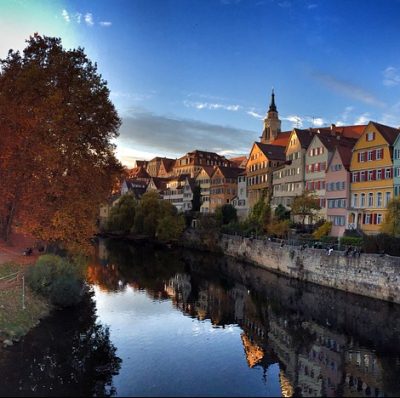 |
Tübingen Located at the edge of the picturesque Swabian Alb, and enjoying the serenity offered by the gently flowing Neckar, the University of Tübingen is part of a genuine university town. Of the city's approximately 85,000 inhabitants, over a third are either enrolled at or work for the university. Founded in 1477, the University of Tübingen now offers a wide range of academic disciplines, from traditional liberal arts to computer science, and students get to choose from a large number of courses in Deutsch als Fremdsprache. University of Tübingen International Office |
 |
Ulm Situated on the banks of the historic Danube River, Ulm University was founded in 1967. Ulm’s curriculum centers on medicine, mathematics and the sciences (including electrical engineering and computer science). Ulm does not have courses of study in the humanities and social sciences with the exception of economics. The city borders on Bavaria and both Stuttgart and Munich are less than a 2-hour train ride away. Ulm University International Office |
Participating Baden-Wuerttemberg Universities of Education (PHs)
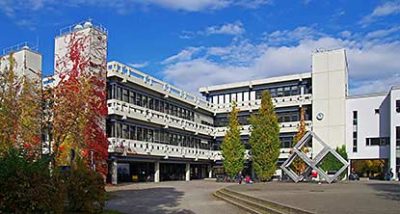 |
Freiburg The Pädagogische Hochschule Freiburg offers top-class study programs in the field of education (early childhood-, adult- and health education, teacher training programs). With approximately 5,000 students, it is one of the largest of six Universities of Education in the federal state of Baden-Wuerttemberg. All programs at the Pädagogische Hochschule Freiburg are very practice-oriented. Pädagogische Hochschule Freiburg International Office |
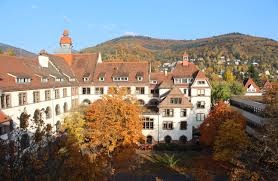 |
Heidelberg The Pädagogische Hochschule Heidelberg is designed to train and qualify prospective teachers for a wide range of teaching careers in elementary, secondary, and special needs education. The University of Education also offers training to other types of educators, including cooperative bachelor and master degree programs in pedagogy for engineers to attain qualification for teaching in vocational schools. Pädagogische Hochschule Heidelberg International Office |
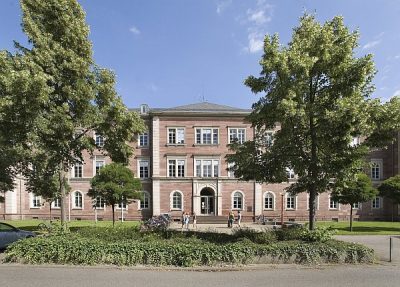 |
Karlsruhe The Pädagogische Hochschule Karlsruhe focuses on educational processes in social, institutional and cultural contexts. It has approximately 3,700 students and 180 researchers and lecturers. The university was established in 1962, although teacher training can be traced back to 1757. The campus is located near the center of Karlsruhe. Pädagogische Hochschule Karlsruhe International Office |
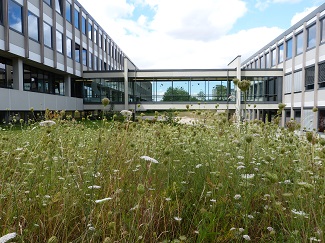 |
Ludwigsburg Pädagogische Hochschule Ludwigsburg is a modern center of competency for educational sciences in four closely related disciplines: school education, extra-curricular children's and youth education, adult/further education and education in cultural and social areas. With approximately 5,500 students and over 450 members of staff, it is one of the largest Universities of Education in Baden-Wuerttemberg. Pädagogische Hochschule Ludwigsburg International Office |
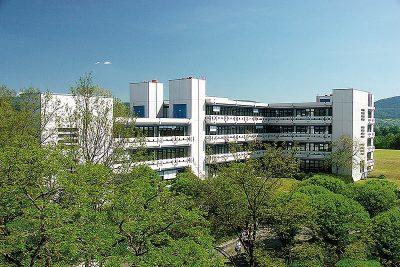 |
Schwäbisch Gmünd The Pädagogische Hochschule Schwäbisch Gmünd offers a wide range of higher education programmes with a focus on Education, Health, and Cultural Diversity. The University of Education is characterized by intensive research activities, including both fundamental and applied approaches, with particular fields of interests in empirical eucation and school research, as well as research in teaching methodology for individual school subjects. Pädagogische Hochschule Schwäbisch Gmünd International Office |
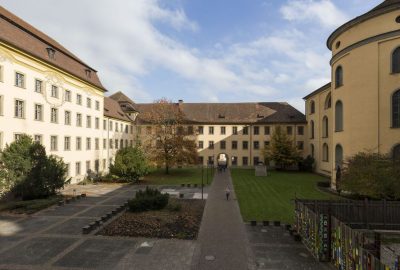 |
Weingarten The Pädagogische Hochschule Weingarten is located in the picturesque town of Weingarten. Some 3,500 student and 50 professors make up the campus, divided into programs for Primary and Secondary School Education. Additionally, undergraduate courses in Pre-Primary Education and Media and Education Management as well as graduate studies in Educational Science, School Development, Alphabetization and Basic Education and Vocational School Education are offered. Pädagogische Hochschule Weingarten International Office |